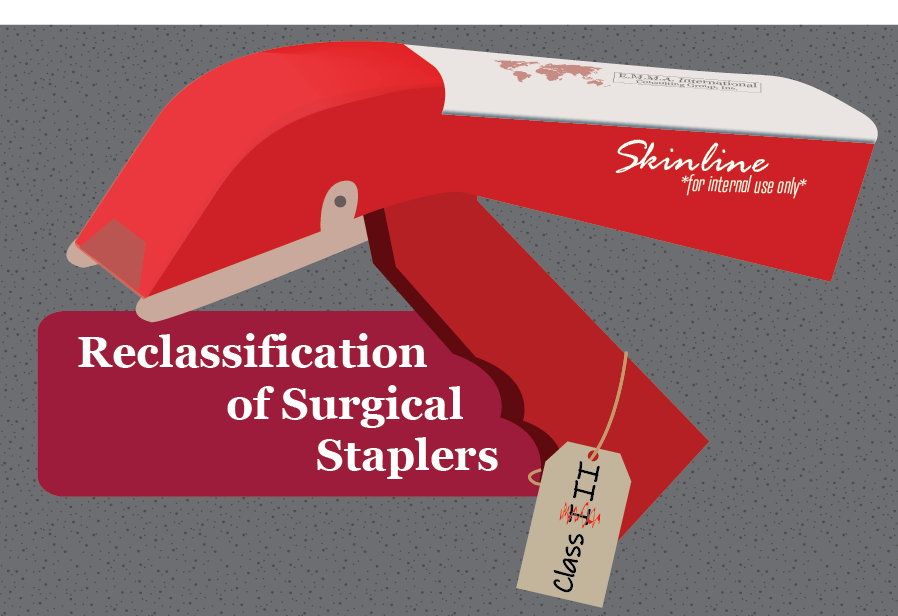FDA has issued a proposed rule to up classify surgical staplers for internal use as class II medical devices, subject to special controls and pre-market notification. Currently, both internal and external surgical staplers are classified as class I, subject to general controls and do not require a pre-market submission. External staplers will remain in class I.
A recent number of the adverse events reported for surgical staplers for internal use has prompted for this proposed rule to up classify the surgical staplers. Stapler malfunction may result in prolonged surgical procedures or unplanned, additional surgical interventions, which may lead to other complications such as bleeding, sepsis, fistula formation, tearing of internal tissues and organs, and death.1 FDA reviewed and analyzed the adverse events reports received via the FDA MedWatch program and observed that the common device malfunctions included malformation of staples, difficulty in firing, misapplied staples, and failure of staplers to fire staples. In studies reporting complications arising from stapler malfunction, bleeding and conversion to open surgery or change of the surgical plan were the most commonly reported consequences, which accounted for almost 10.7% of the 207 reported stapler malfunctions.1
The proposed new classification will require manufacturers of internal use surgical staplers to demonstrate substantial equivalence to a predicate device already on the market. The staplers will also be subjected to special controls to mitigate health risks. FDA believes that as part of the special controls, the following tests can mitigate the risks of device failure, user error, and infection/tissue reaction:1
- Usability testing
- Biocompatibility evaluation
- Performance testing
- Sterility
- Shelf-Life
In a Medical Devices Advisory Committee meeting, held on May 30, 2019, panel members unanimously agreed that surgical staplers for internal use should be reclassified as class II with special controls. Additionally, two of the largest surgical stapler manufacturers, Medtronic and Ethicon, agreed that class II is appropriate for surgical staplers for internal use. Industry is expecting FDA to provide affected manufacturers with a clear pathway forward to ensure that access to surgical staplers is not severely impacted. While the reclassification has not yet been finalized, we can expect a draft guidance document for surgical staplers this year and potentially collaborative solutions from industry to prevent user error.
If you have any questions about the new rule, or if you are looking to introduce your device into the US market, please reach out to us at 248-987-4497 or email at info@emmainternational.com.
1FDA (May 2019) FDA Executive Summary: Reclassification of Surgical Staplers for Internal Use retrieved on 07/10/2019 from https://www.fda.gov/media/126211/download





